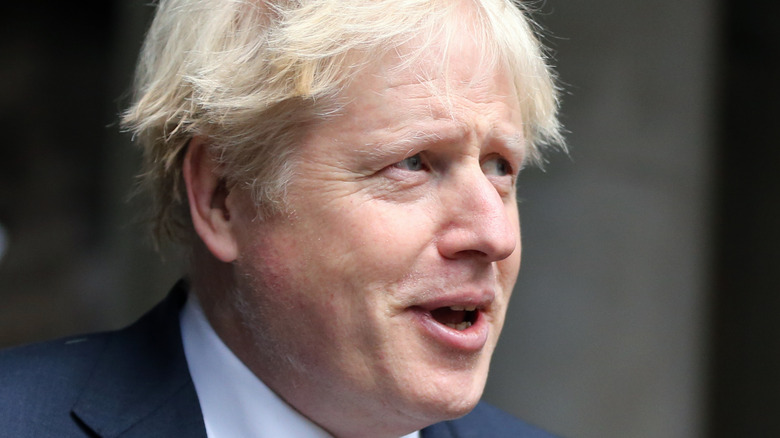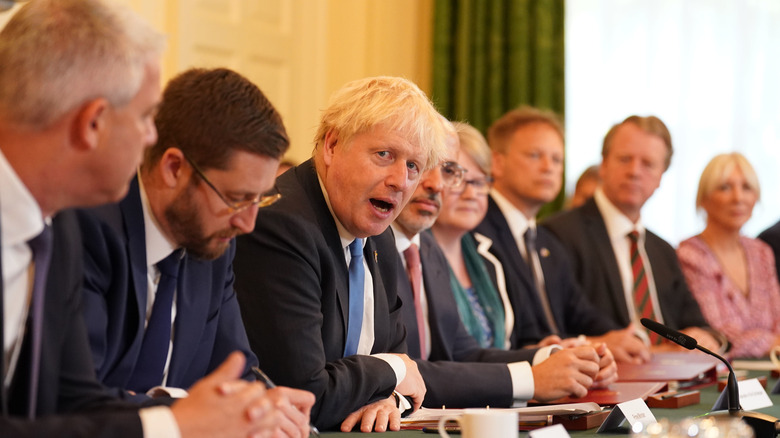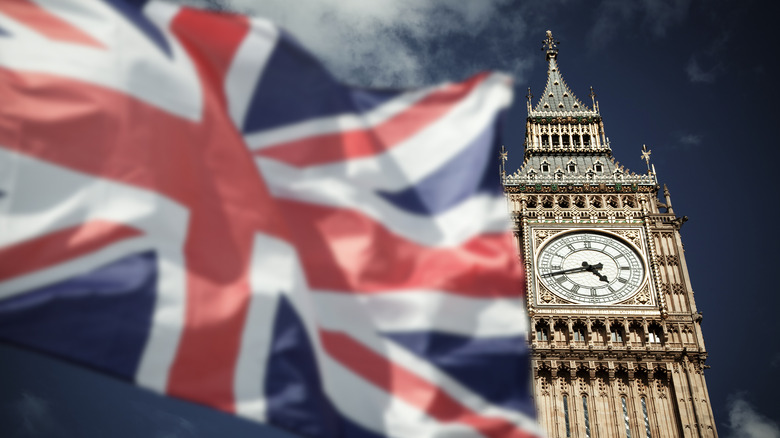Who Replaces The British Prime Minister If They Die In Office?
No person on planet Earth is invincible. Thus, nations worldwide have had to devise contingency plans in case their leaders or other people in power die, to determine who takes their place. In the United States, if the president dies while in office, the vice president assumes the presidency. In France, the President of the Senate temporarily assumes the presidency if the president dies until a new election is held, according to Article 7 in the French constitution. Some nations, however, don't have a clear line of succession, which can cause trouble in the government if someone high up the chain of command unexpectedly dies, with the United Kingdom being a clear example of this.
The British government has changed and evolved over the centuries, meaning the U.K. often experiences growing pains as new rules clash with the old. Originally, a succession of Great Britain's head of state was relatively easy to figure out, because the monarchy was the supreme power in the British government. If the king or queen died while in office, their first-born male offspring would take the throne. But over the years the United Kingdom has become increasingly democratic, and the prime minister has gained more and more power over the government. One thing has become increasingly unclear, however: Who replaces the prime minister if they die in office?
A History of the Prime Ministry
In order to properly understand the line of succession when it comes to the office of the prime minister, it's important to know the history of this title. For a long time, there was no such thing as a "prime minister" in the British government, and the term was actually used as an insult against politicians who were accused of usurping power (via the United Kingdom). One man who was called a prime minister was Sir Robert Walpole, and his influence over the British government helped pave the way for an official place in parliament for a real, official prime minister.
After the "Glorious Revolution", also known as "The Revolution of 1688," parliament increasingly became more powerful, according to History. As parliament had a bigger voice in government, there were new opportunities for politicians within the House of Commons and the House of Lords to seize power and have a sizable impact on not just the government, but the nation as a whole. Sir Robert Walpole, a member of the House of Commons and the First Lord of the Treasury took this opportunity and often acted on behalf of the monarchy to direct parliament on falling in line with the crown.
Quasi-Official Title to Head of State
Many more politicians took the same path as Sir Robert Walpole did, and over time the term "prime minister," which was once an insult used against politicians for having too much power, became more and more accepted. Today, the British Prime Minister is generally considered to be the head of state, and the way they are elected has dramatically changed as well. Once appointed by the monarch, now the role is, in essence, selected by the public and parliament.
British constituents vote on an MP (member of parliament) every five years, and whichever party has a majority in parliament usually elects their party leader to be the prime minister (via the UK Parliament). However, the political parties in Britain nowadays usually rely on the help of the general public and party members to select their leaders. In the Conservative Party, MPs nominate candidates for party leader and vote until only two remain, then members of the party across the nation vote between the two candidates, according to The Economist. The Labour Party, on the other hand, uses a ranked-choice voting system where trade unionists and registered supporters vote on nominated MPs until one candidate gets 50% plus one vote, according to The Conversation.
But unlike other nations, these elections don't account for what to do if a prime minister unexpectedly dies. So how does the government deal with succession?
Uncertainty in Times of Crisis
Given how the title of prime minister evolved as a quasi-official role to what it is today, there's not much on what happens if the current occupant dies while in office. This may be because there has never been much immediate need to resolve the issue, given the last time a prime minister died while in office was in 1865, according to the Mile End Institute. At that time, the prime minister was simply appointed directly by the monarch, unlike today.
There have been some suggestions on how to resolve this issue, such as having parliament appoint a temporary prime minister until an election is held, or having party leaders choose running mates that could fill the void if they happen to die while in office. Since nothing official has been decided, no one really knows how much power each of these theoretical positions would be allocated. During a national crisis, this could prove to be detrimental to the British government during a time when much-needed guidance would be absent, as the parliament experiences a power vacuum.
Perhaps parliament will soon recognize this potential problem, and take action to ensure a smooth transition of power in case of emergency.



